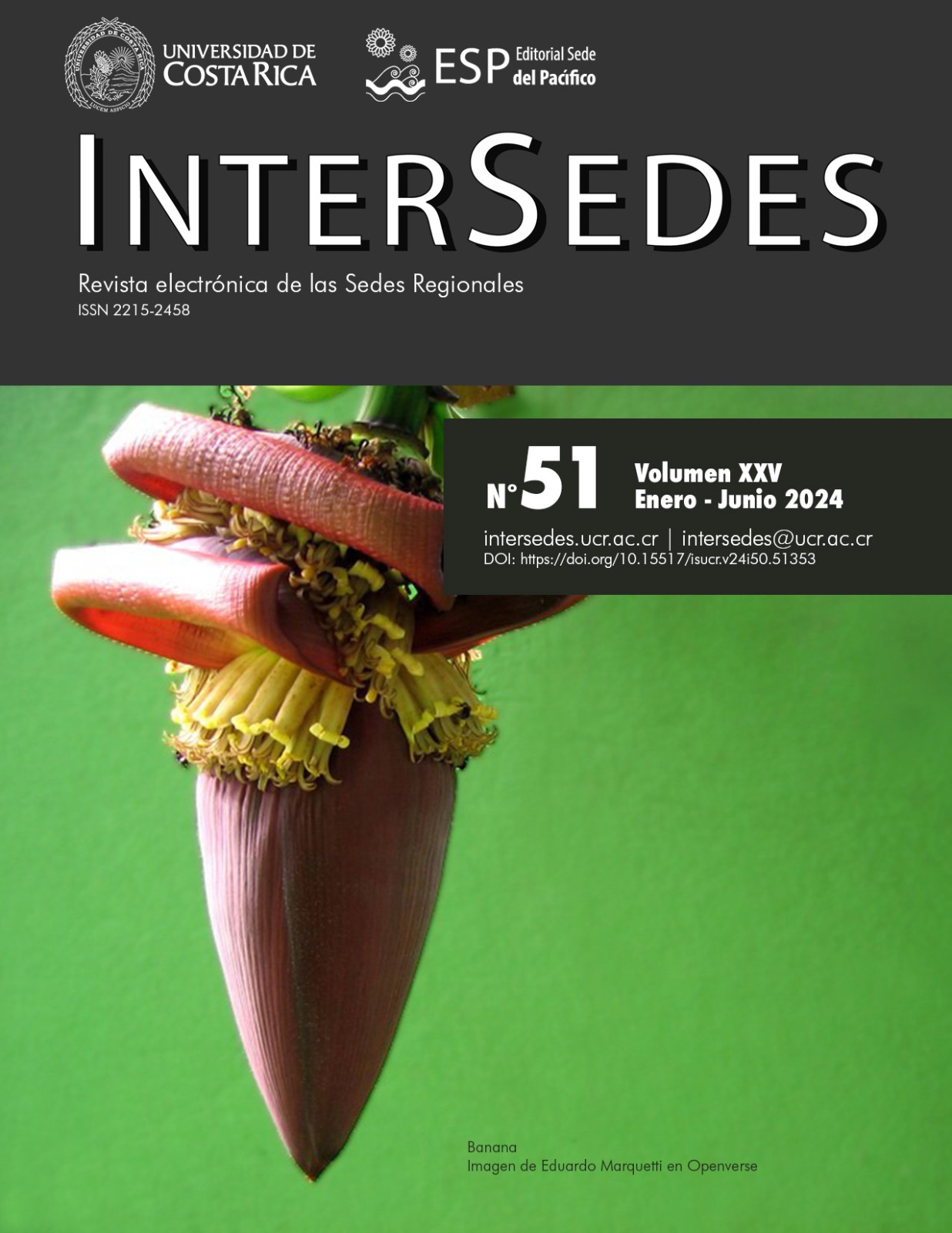Abstract
The article aims to make a conceptual approximation of what Adolfo Constenla-Umaña (Costa Rican linguist (1948-2013) who researched indigenous languages) understood about “religion”, because it is a concept that appears constantly in his analysis, when it deals with indigenous literature, but that he did not expressly define, according to what can be inferred from the review of the primary sources and secondary literature that has been written about the author. In what corresponds to the methodological, an approach typical of analytical philosophy is carried out, in which different texts by Constenla-Umaña are carefully scrutinized in which the author made reference to matters related to religion, religion, religious practices or customs. The systematization of the information was structured in a series of questions, which starts from the basics, advancing to other related issues. As results, three aspects were concluded: the first, that Constenla-Umaña avoids falling into an a priori evaluative judgment, by moving away from attempts to classify religion in binomial terms of “good-bad”; second, it also avoids reproducing unnecessary questions about whether certain elements of religion are real or fictitious; and the third, that it shows a deep respect that the author had for religion, specifically for indigenous religions.
References
Asad, T. (1993). Genealogies of Religion. Discipline and Reasons of Power in Christianity and Islam. The Johns Hopkins University Press.
Castillo, R. (2011). El pueblo indígena maleku de Costa Rica y su patrón de asentamiento en la segunda mitad del siglo XIX. Revista Geográfica, 150, 75-95.
Constenla-Umaña, A. (1982a). Seis narraciones tradicionales guaimíes (moves). Revista de filosofía y lingüística de la Universidad de Costa Rica, 8 (1 y 2), 103-107.
Constenla-Umaña, A. (1992). Hagiografía y Antihagiografía en la tradición oral guatusa. Filología y Lingüística, XVIII, 1, 83-124.
Constenla-Umaña, A. (1993). Laca Majifijica. La Transformación de la Tierra. (Introducción, transcripción y traducción de Adolfo Constenla-Umaña; narración por Eustaquio Castro y Antonio Blanco). EUCR.
Constenla-Umaña, A. (1996). Poesía tradicional indígena costarricense. (Serie antológica). EUCR.
Constenla-Umaña, A. (1991). Tres textos guatusos del ciclo narrativo de las uniones con los animales. Revista de Estudios de Lingüística Chibcha, 10, 101-119.
Constenla-Umaña, A. (2006). Poesía bribri de lo cotidiano. EUCR
Constenla-Umaña, A. (2011a). Leyendas y tradiciones borucas. Tomo I. EUCR.
Constenla-Umaña, A. (2011b). Leyendas y tradiciones borucas. Tomo II. EUCR.
Constenla-Umaña, A. (2011c). Pláticas sobre felinos. (Narración de Eustaquio Castro; introducción, transcripción y traducción de Adolfo Constenla-Umaña). EUCR.
Constenla-Umaña, A. (2014). Cantos guatusos de entretenimiento. Treinta y un cantos de erotismo, de trabajo y de cuna. (Colaboración en la transcripción y traducción de Eustaquio Castro; introducción, transcripción y traducción de Adolfo Constenla-Umaña). EUCR.
Constenla-Umaña, A. (2016). Hacer lo que uno siempre ha deseado. Entrevista al Dr. Adolfo Constenla Umaña. Estudios de Lingüística Chibcha, 35, 157-182.
Constenla-Umaña, A.; e Ibarra-Rojas, E. (2014). Anotaciones etnohistóricas sobre los indígenas botos: confluencia de datos históricos, antropológicos y de la tradición oral malecu. Estudios de Lingüística Chibcha, 33, 111-164. [Este artículo contiene las ‘Pláticas de bótos’, en su versión malecu y española]
Hanegraaff, W. (2016). Reconstructing “Religion” from the Bottom Up. Numen, Vol. 63, No. 5/6, 576-605.
Jara-Murillo, C. V. (2014). La labor de divulgación de Don Adolfo Constenla Umaña. Estudios de Lingüística Chibcha, 33, 15-19.
Margery-Peña, E. (1997). Perfiles religiosos de los pueblos indígenas de Costa Rica. Mitológicas, vol. XII, núm. 1, 19-31.
Margery-Peña, E. (2007). Estudios de mitología comparada indoamericana. Tomo II. El origen del fuego y concepciones sobre el lugar de los muertos en pueblos indoamericanos. EUCR.
Portilla-Chaves, M. (2014). Relevancia de los estudios de lingüística diacrónica de Adolfo Constenla. Estudios de Lingüística Chibcha, 33, 21-24.
Rojas-Chaves, C. (2014). La labor social del Dr. Constenla y sus aportes al conocimiento de las lenguas y culturas indígenas costarricenses. Estudios de Lingüística Chibcha, 33, 25-27.
Schaffalitzky de Muckadell, C. (2014). On Essentialism and Real Definitions of Religion. Journal of the American Academy of Religion, Vol 82, No. 2, 495-520.
Solano-Fallas, A.; y Herrera-Valenciano, M. (2017). Felinos en los malecus: simbolización de la muerte como aliciente moral. Revista de Filosofía de la Universidad de Costa Rica, Vol. LVI, No. 144,171-178.
Stensrud-Krohn, H. (2014). El aporte de Don Adolfo Constenla Umaña en cuanto a las descripciones gramaticales y los corpus publicados en lenguas indocostarricenses. Estudios de Lingüística Chibcha, 33, 29-33.
Comments

This work is licensed under a Creative Commons Attribution-NonCommercial-NoDerivatives 3.0 Unported License.
Copyright (c) 2023 Andrés Solano-Fallas


